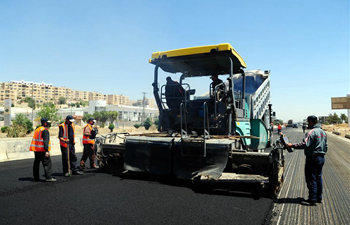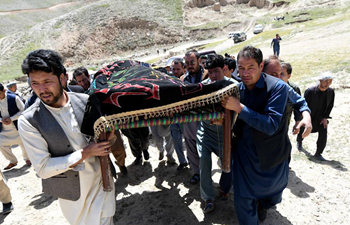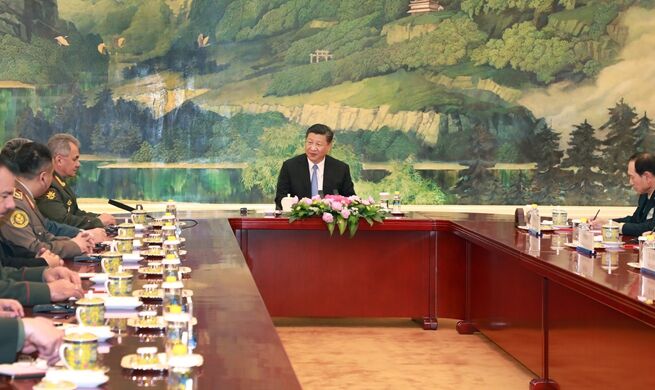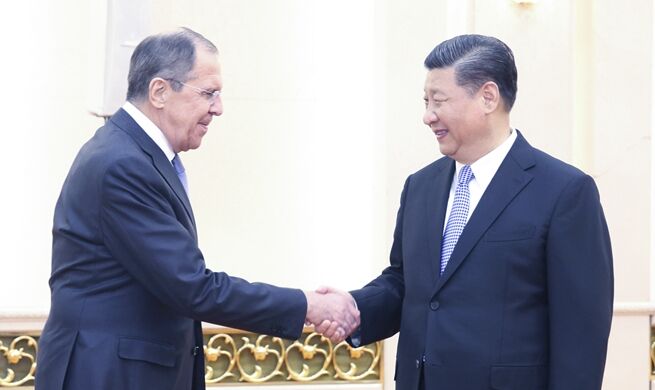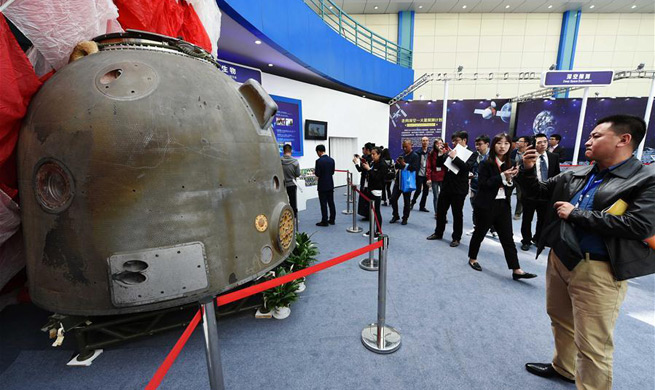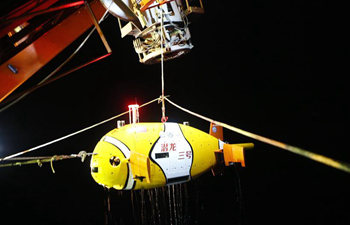TEHRAN, April 24 (Xinhua) -- Iranian steel exporters have put trades on hold until the government's policies on the currency market are settled and become operational.
"Exports are in lockdown," said Khouzestan Steel Company's (KSC) sales and marketing manager Bahman Tajalizadeh, according to Financial Tribune daily Tuesday report.
"The only exports taking place at the time are our previously-arranged obligations and we don't even know how we're going to get the money," Tajalizadeh was quoted as saying.
Iran's foreign exchange market recently went in a frenzy, with the rial losing its value against the U.S. dollar on a daily basis.
President Rouhani's government had to intervene to bring back stability by fixing U.S. dollars rates, and the Central Bank of Iran (CBI) designated the banks as the sole players in currency market.
The CBI has banned non-governmental forex market from buying, selling and transferring foreign currencies in an attempt to regulate and stabilize currency rates.
Tajalizadeh said the stabilizing act of intervention has in fact sowed confusion in market, as companies are unable to have any future plans or forecasts in the current situation.
As a matter of fact, the newly announced rate of 42,000 rials for one U.S. dollar is not attractive for exporters and its implication is far-reaching for businesses.
Besides, Khorasan Steel Company's deputy head for sales echoed the same concerns, emphasizing that the forex confusion has also put local trading on hold.
"It's simply not feasible to buy or sell at the time. Current prices are unattractive for buyers and concerns regarding the market's future and import prices keep producers from selling," Mohammad Hassan Parsa said.
Also, the downstream users have repeatedly voiced concerns about the supply shortages.
According to the report, Metal Bulletin, the London-based information provider on global steel markets, also described steel import trade in Iran as "non-existent" in the past several weeks.
"We've no idea how forex transactions are going to take place now. Banning bureaux de change from trading forex has essentially stopped the money flow," said Ali Naeemi, commercial manager of Pasargad Steel Company.
Just days after putting an end to the dual foreign exchange regime on April 9, the Central Bank of Iran announced that banks will take over forex trading and exporters are required to sell their hard currency to the banking system or deposit it in domestic banks.
In the meantime, Iran's first Vice President Es'haq Jahangiri on Monday officially inaugurated the Forex Deals Integrated System, an online system designed to address the country's currency needs and boost transparency.
"This system is a new opportunity for importers to be able to get their required foreign currency easily and for exporters to offer their proceeds to the market," said Jahangiri.
Maziar Motamedi, the financial expert, wrote that this is a potentially good move, as registering all forex trade on the system will enable the regulator to monitor the market and prevent capital flight.
"What's not good, however, is that Nima took its time to become operational. The system was still in beta testing phase", Motamedi wrote in Financial Tribune.
The exports of other metals, including lead, have not been immune from the impacts of current situation.
"Some 60 percent of Iranian exporters have adopted a wait-and-see approach because of the currency, while 40 percent are still exporting but not at the usual pace or volume," a major lead trader told the daily.





